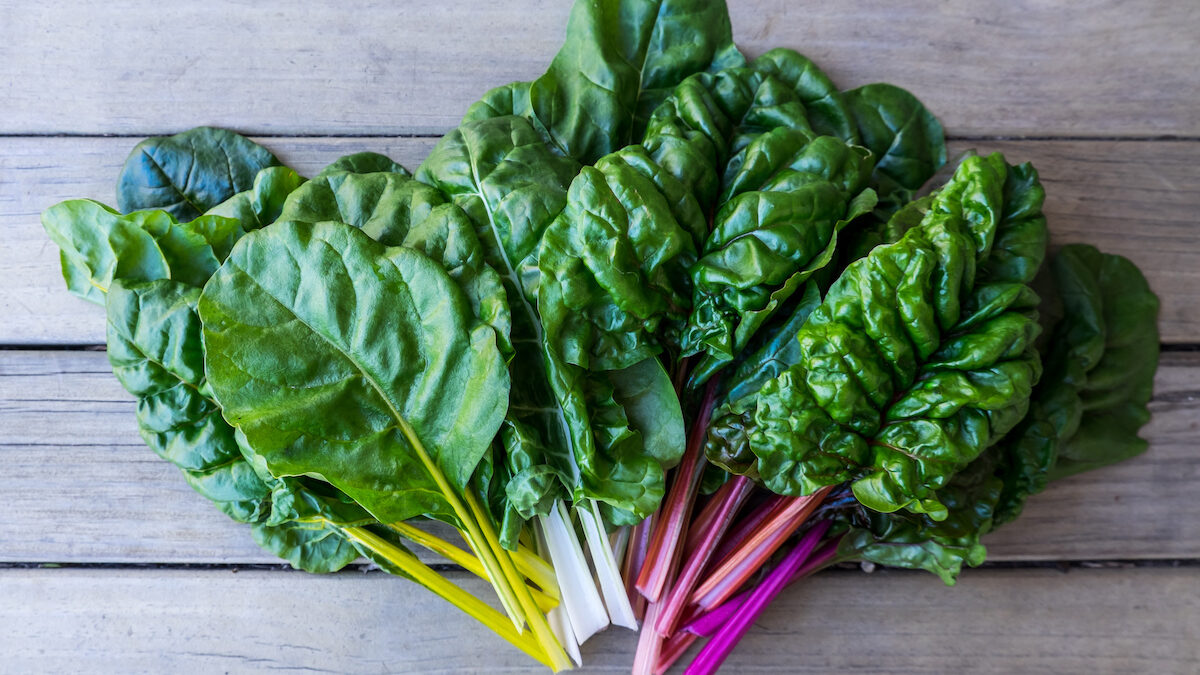Why You Should Eat More Leafy Greens

Leafy greens including kale, spinach, arugula, and chard are the undeniable superstars of the food world. Low in calories, yet high in fiber, vitamins, and phytonutrients, greens are incredible for your health in more ways than you would even suspect.
Whether in whole food form, smoothies, or organic greens powders, greens have the power to make you look and feel younger, and can even support healthy aging! If you still need convincing, read on to learn about all the amazing benefits of getting more greens in your diet.
What Makes Greens Nutritional Powerhouses
Do you struggle with leaky gut, food sensitivities, or autoimmunity? If so, getting more greens into your diet could help. A recently discovered gene known as T-bet that gets switched on by cruciferous veggies such as broccoli or brussels sprouts instructs precursor cells in your intestinal lining to produce innate lymphoid cells (ILCs).
They also protect your body from bad bacteria, while the fiber in greens feeds your good bacteria, making leafy greens an all-around great choice for anyone dealing with gastrointestinal distress of any kind. Taming the toxins is an essential component of The Myers Way®, and one of the easiest ways to do this is by getting more greens in your diet.
Why Chlorophyll is Important
Chlorophyll also helps cleanse your liver to support your body’s natural ability to detox, and supports immune function to keep toxins from collecting in your body in the first place! As I always say, you aren’t what you eat, you’re what you digest and absorb. Digestive enzymes are critical for breaking down and absorbing the nutrients from our food, so if you are deficient in these enzymes you are likely to experience all sorts of gastrointestinal issues including bloating, constipation, reflux, and nutrient deficiencies.
Raw, leafy greens are one of the best foods you can eat to support your body’s natural ability to produce digestive enzymes. One of the most promising benefits of greens may be their ability to support your immune system. Greens such as moringa leaf can support a healthy response to oxidative damage.
Why Magnesium is Important
Plus, the magnesium found in green leafy vegetables can help support optimal vascular health. All those “Got Milk?” ads might have you believe that drinking milk is the only way to build strong bones. However, research has shown that milk consumption has no protective effect on fracture risk and may even increase the risk of hip fractures among women.
Green veggies such as broccoli and kale also contain tons of all-important vitamin K. Are you looking to age healthfully? Who isn’t? Greens have the power to delay the shortening of telomeres, the protective caps on our DNA that shorten with age. Once its telomeres are completely gone, the cell dies.
Greens and Their Health Benefits
Your daily greens provide disease-fighting, anti-aging, and immune-boosting benefits!
In fact, greens-eaters have been shown to have the memory equivalent of someone 11 years younger! This was even true after adjusting for other factors including lifestyle, education, and overall health. If you struggle with bloating, whether caused by diet, hormones, gut infections, or other digestive issues, there’s a secret ingredient in leafy greens that could help.
Pay Attention to The Colors!
Think of leaves changing color in the fall. As they lose chlorophyll (the pigment that makes them green), you can see the red, orange, and yellow pigments those leaves contain underneath. It’s these vibrant colors that are also responsible for the amazing health benefits of leafy greens. Beta-carotene can give your skin a youthful glow and even works from the inside-out as a natural sunscreen, protecting your skin from harmful UV rays! Kale is one of the top sources of beta-carotene, and research shows that cooking, juicing, or dehydrating greens helps your body better absorb this carotenoid.
Though this may be a no-brainer, I want to re-emphasize how important it is to support a healthy inflammatory response in order to protect yourself from a battery of chronic illnesses. Leafy greens contain antioxidants and polyphenols, the disease-fighting compounds found in plant foods. Eating a serving of leafy greens with every meal can support appropriate blood glucose levels.
Why People Think They Don’t Like Greens
Chances are, you grew up in a household where your mother would (over)cook vegetables and you would refuse to eat them. Nowadays, parents often have a different problem: Kids love vegetables, as long as they’re deep-fried, smothered in ranch dressing, or covered with cheese. But here’s the deal: All of us — yes, that means you! — need to eat some greens on a regular basis (without the unhealthy extras).
Excuses like… but… they don’t taste good are not acceptable. Unless you’re severely allergic, there’s no reason you shouldn’t at least try a variety of greens before banishing them from your plate forever. Everyone’s taste buds differ, and our flavor preferences can change over time — so the food you may have tried and hated when you were 11 might turn out to be your new favorite dish.
During the holiday season, it is easy to eat how we want and not how we should. Make a commitment to incorporating leafy greens into at least one meal a day this week and your body will thank you! If you have any questions talk to Hillandale Primary Care today.



